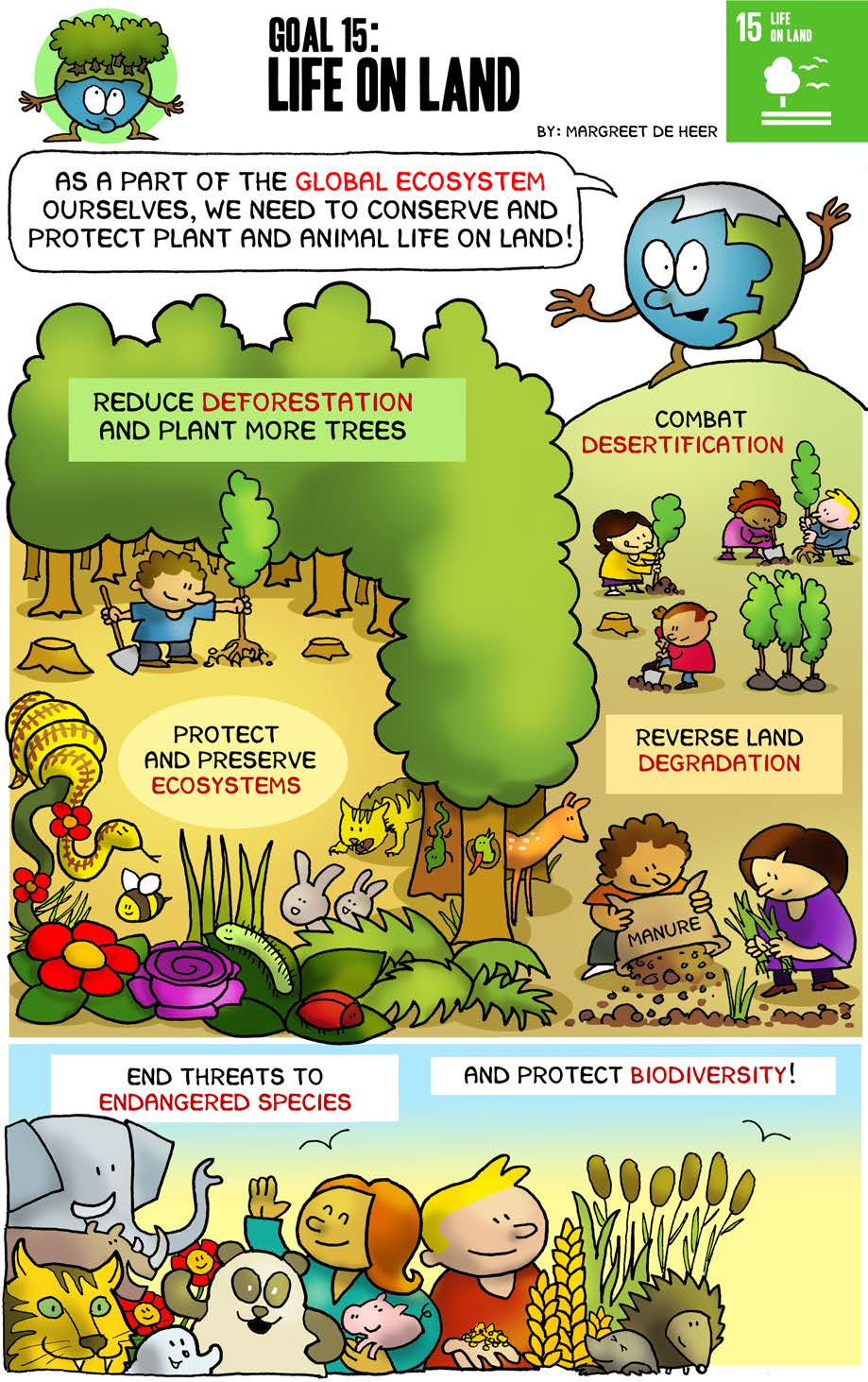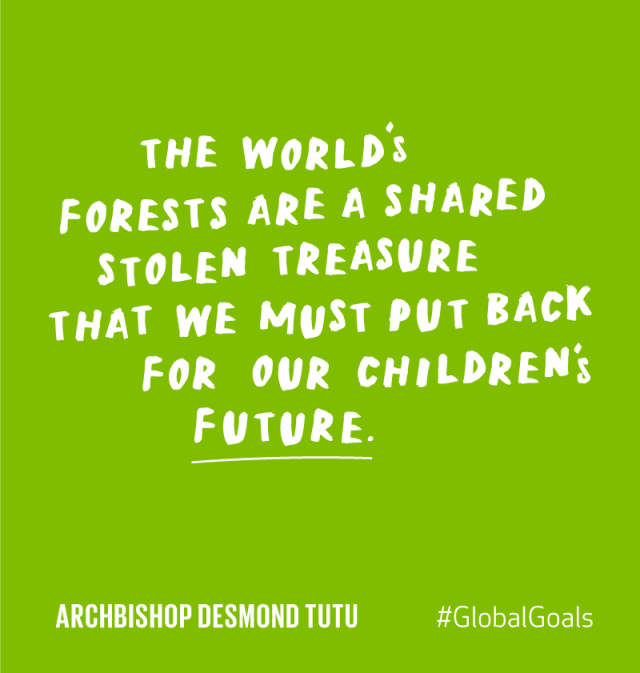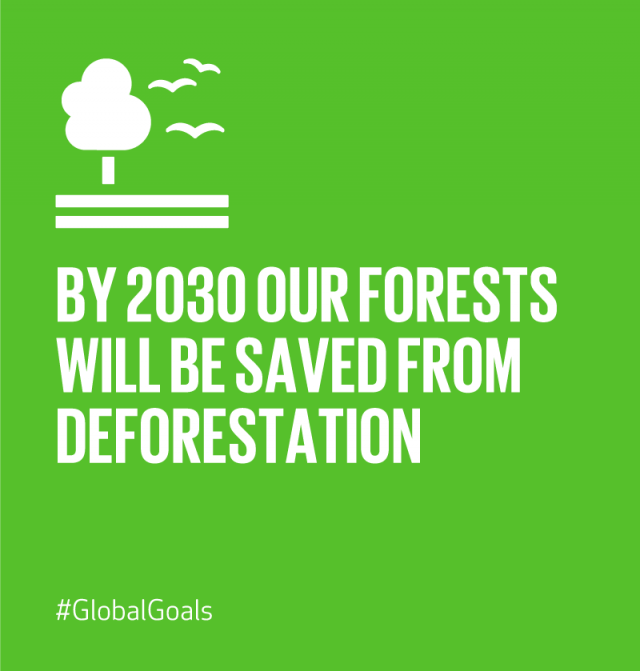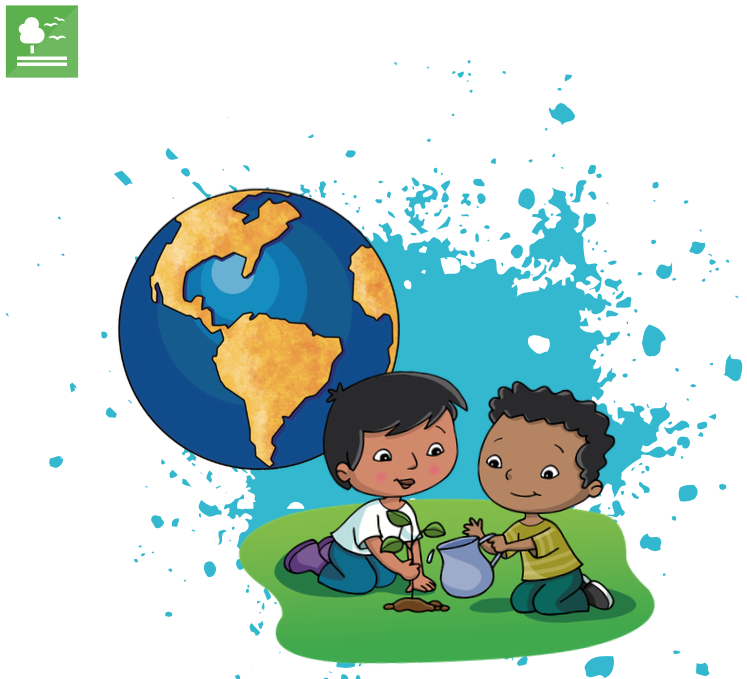15. Life On Land

Protect, restore and promote sustainable use of terrestrial ecosystems, sustainably manage forests, combat desertification, and halt and reverse land degradation and halt biodiversity loss
Why It Matters

Forests cover 30 per cent of the Earth’s surface and in addition to providing food security and shelter, forests are key to combating climate change, protecting biodiversity and the homes of the indigenous population. Thirteen million hectares of forests are being lost every year while the persistent degradation of drylands has led to the desertification of 3.6 billion hectares.
Deforestation and desertification – caused by human activities and climate change – pose major challenges to sustainable development and have affected the lives and livelihoods of millions of people in the fight against poverty. Efforts are being made to manage forests and combat desertification.
Facts & Figures

Forests
- Around 1.6 billion people depend on forests for their livelihood. This includes some 70 million indigenous people
- Forests are home to more than 80 per cent of all terrestrial species of animals, plants and insects
Desertification
- 2.6 billion people depend directly on agriculture, but 52 per cent of the land used for agriculture is moderately or severely affected by soil degradation
- As of 2008, land degradation affected 1.5 billion people globally
- Arable land loss is estimated at 30 to 35 times the historical rate
- Due to drought and desertification each year 12 million hectares are lost (23 hectares per minute), where 20 million tons of grain could have been grown
- 74 per cent of the poor are directly affected by land degradation globally
Biodiversity
- Of the 8,300 animal breeds known, 8 per cent are extinct and 22 per cent are at risk of extinction
- Of the over 80,000 tree species, less than 1 per cent have been studied for potential use
- Fish provide 20 per cent of animal protein to about 3 billion people. Only ten species provide about 30 per cent of marine capture fisheries and ten species provide about 50 per cent of aquaculture production
- Over 80 per cent of the human diet is provided by plants. Only three cereal crops – rice, maize and wheat – provide 60 per cent of energy intake
- As many as 80 per cent of people living in rural areas in developing countries rely on traditional plant-‐based medicines for basic healthcare
- Micro-organisms and invertebrates are key to ecosystem services, but their contributions are still poorly known and rarely acknowledged
Targets

• Protect and conserve ecosystems (for example, deserts and rainforests) by respecting signed international agreements.
• Reduce deforestation and plant more trees in order to reforest.
• Protect and urgently prevent the extinction of endangered species; stop uncontrolled hunting and trafficking in protected species of flora and fauna. It is important to involve indigenous communities.
Take Action

- Do not buy products that are the result of illegal wildlife trade.
- Demand that your local authorities offer ways to dispose of gadgets properly. Up to 90% of the world's electronic waste, worth nearly $19bn, is illegally traded or dumped each year, harming the environment.
- Don't print. Jot it down in a notebook or better yet digitally and spare the paper.
- Switch to online bank statements and bills to reduce your use of paper.
- Volunteer with organizations to plant trees and restore degraded ecosystems.
- Recylce, eat a locally-based diet that is sustainably sourced, consuming only what we need, and limiting energy usage through efficient heating and cooling systems.
- Respect wildlife and only take part in ecotourism opportunities that are responsibly and ethically run in order to prevent wildlife disturbance.
- Well-managed protected areas support healthy ecosystems, which in turn keep people healthy. It is therefore critical to secure the involvement of local communities in the development and management of these protected areas.